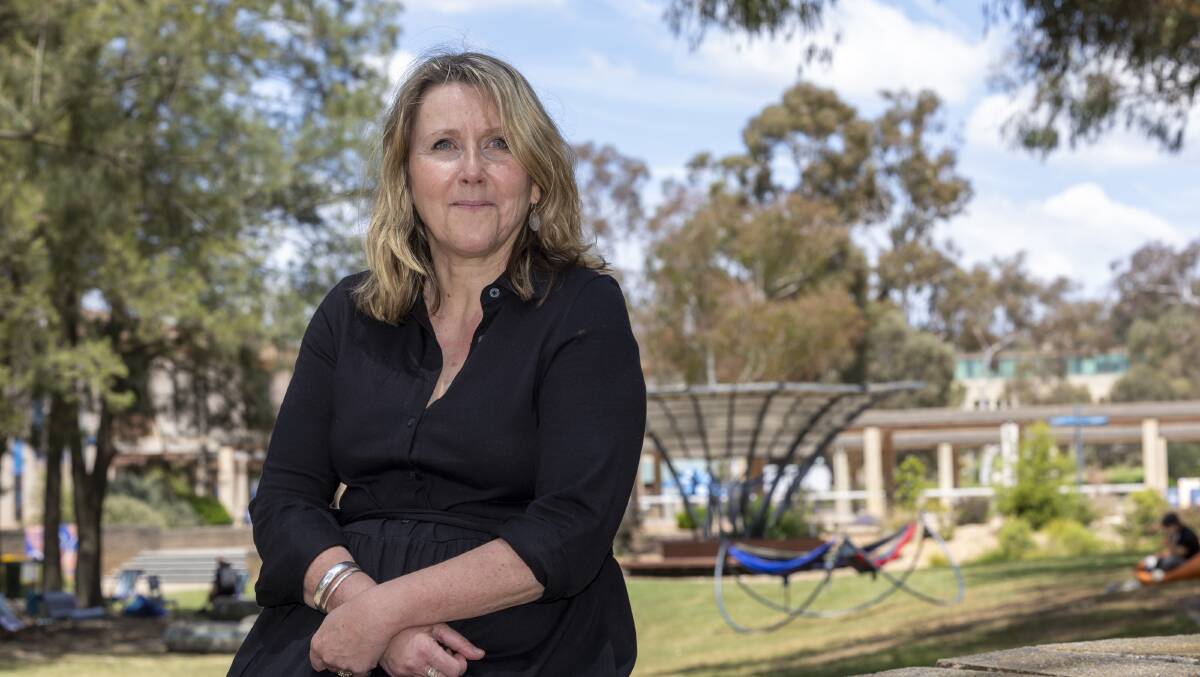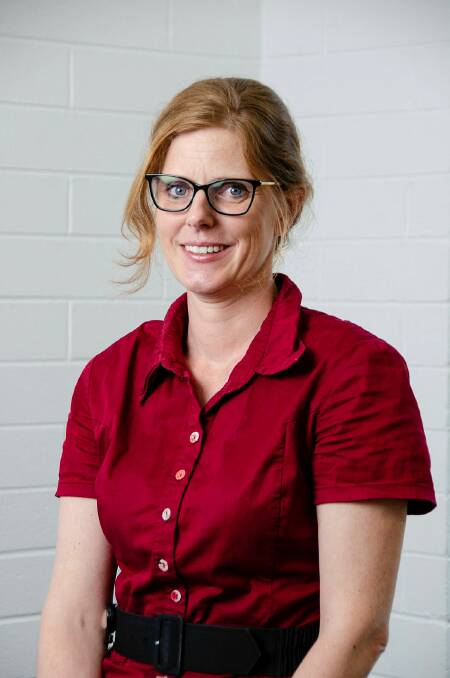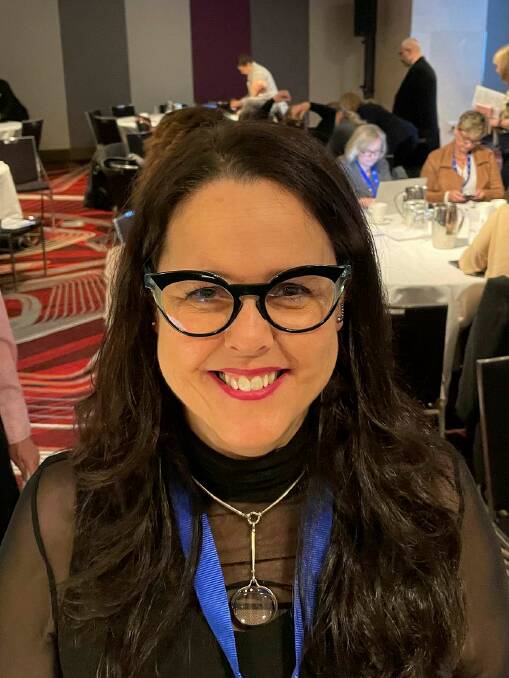One in five students in a class are likely to have some level of disability, but not all teachers have the evidence-based skills to cater for the diverse needs of students in their classes.
Angus Lange, 18, with his mum Sarah Lange talks about his struggle with dyslexia in school.
University of Canberra doctoral lecturer Julia Davies-Duff exposes her pre-service students to the latest research on best practice for teaching neurodivergent students.
But the training is not as detailed as she would like it to be and doesn't address skills of in-service teachers.
"There's still a misconception that you need a full diagnosis to provide adjustments in the school setting which is not true," Mrs Davis Duff said.
"Teachers need to be aware that parents are coming in informed and are expecting their teachers of their children to be informed."

Julia Davies-Duff is a doctoral lecturer in initial teacher education at the University of Canberra. She trains pre-service teachers on evidence-based ways to support students with diverse needs. Picture by Gary Ramage
Under the Disability Standards for Education, schools are obliged to support all students, including those with ADHD, autism and dsylexia, regardless of whether they have had a confirmed diagnosis.
The thing Mrs Davies-Duff emphasises to her students is to think beyond the stereotypes of neurodivergent students.
"We know each student that has ADHD is not bouncing off the walls and is a boy," she said.
"We're trying to move away from those stereotypes and get them to understand the cognitive underpinnings as well. So you know that dyslexia is not vision, it's language-based. [Autism spectrum disorder] is not no eye contact, or no empathy. It's a wide range of things.
"And there's many that they've never heard about like dyscalculia or dyspraxia, or Developmental Coordination Disorder."
Universal design for learning
There are some things teachers can do to in their classrooms to make the curriculum more accessible for all students.
"If we can design our classrooms with diversity in mind, like universal design for learning or using evidence-based pedagogy, then we're going to cater for more of them," Mr Davies-Duff said.
"So we're not teaching to the middle and then doing something different for the others. We're actually thinking first and foremost about the edge students."
University of Canberra senior lecturer in educational psychology Dr Karen Oakley said some strategies that work well for students with autism were also often effective for students with anxiety, a trauma background or ADHD.

Dr Karen Oakley, Clinical Neuropsychologist and Senior Lecturer in Educational Psychology at the University of Canberra. Picture supplied.
"Routines are really important. They set clear expectations, they set clear boundaries," Dr Oakley said.
She said routines and instructions could be reinforced with visual cues to help students bring back their attention to the task they should be doing.
"Realising that a student needs to work for 10 minutes, and then have a bit of a body break and then come back and do 10 minutes of work doesn't cost us anything," she said.
Dr Oakley said the key was getting to know the student well - which can be a challenge amid the current teacher workforce shortage.
EXPLAINER: What are the signs of specific learning difficulties?
The Education Directorate's new disability inclusion strategy includes plans to develop a teacher training package on universal design for learning and adapting the curriculum for different student needs.
The directorate intends to develop resources to help teachers put in place reasonable adjustments and will pilot inclusion coaches in the Tuggeranong schools.
ACT Education Directorate acting executive group manager for service design and delivery Angela Spence said ACT public schools were able to make their own decisions about the best ways to support students.
"Our schools are best placed to make decisions around the most appropriate supports and adjustments for young people."
Over-reliance on teacher aides
The number of teacher aides has ballooned over recent years. In ACT public schools the number of school assistants has increased by 47.6 per cent between 2016 and 2022, while school enrolments grew by 14 per cent in that time.
Parents often push for teacher aides to give one-on-one support to students with neurodivergent conditions. However, Ms Davies-Duff said it meant students with the most needs were being taught be the least qualified adult in the room.
"Often the way teaching assistants are used, and lots of our students are teaching assistants as well, is actually a form of segregation but with no malicious intent," she said.
Ms Spence said the directorate was rolling out training for learning support assistants, including in regulatory requirements and effective communication.
FALLING THROUGH THE CRACKS:
- Dyslexia misunderstood despite being most common learning difficulty
- Canberra's neurodivergent families deserve much better
- Why neurodivergent children are falling through the cracks
"We believe that they play a role in supporting not just our neurodiverse students or students with a disability but our learning support assistants play an important role in education," Ms Spence said.
"And we are making investments to support their skill development and the way in which they work with educators in in this area."
Better support for teachers
While there are many professional development courses available for in-service teachers, they have a large degree of choice in what they do as part of their registration requirements.
There is no mandatory training, besides an online learning module on the Disability Standards for Education, which Mrs Davies-Duff said tended to be a "tick and flick" exercise.
Monash University Senior lecturer in inclusion and disability Kate de Bruin said the national standards that apply to teaching degrees and professional learning for teachers could be tightened up.

Kate de Bruin, Senior lecturer at Monash University in inclusion and disability. Picture supplied.
"Schools are systems within systems and systems are hard to change," she said.
"There's a lot of reliance on things that have always been done so you get practices sometimes that are hard to change and still reflect kind of thinking from a long time ago."
Dr de Bruin said Australia could borrow the idea from the United States of making individual learning plans legal documents where all learning adjustments are documented in the one place.
"I think that would be a game changer here, if we made it clear that those adjustments that are a legal entitlement of a child and a legal obligation on schools that should be recorded in that document."
Dr Oakley said there could be more ongoing training and coaching for in-service teachers, especially as they find their footing in the classroom.
"They want to be doing a good job. They want their students to succeed and they want to not feel like they're just trying to manage the behaviours of the classroom."